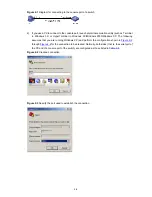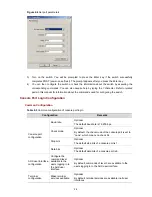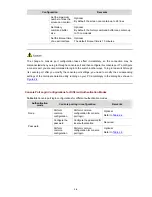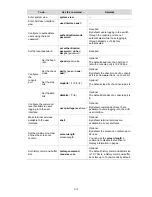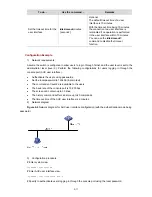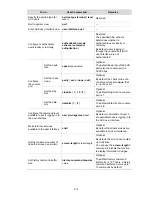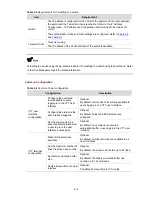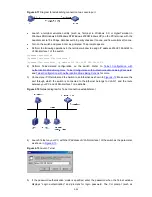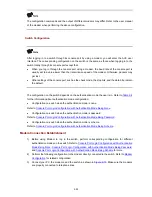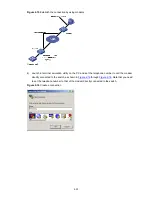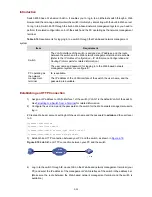
Telnet Configuration with Authentication Mode Being None
Configuration Procedure
Follow these steps to configure Telnet with the authentication mode being none:
To do…
Use the command…
Remarks
Enter system view
—
system-view
Enter one or more VTY user
interface views
user-interface vty
first
-
number
[
last-number
]
—
Required
Configure not to authenticate
users logging in to VTY user
interfaces
authentication-mode none
By default, VTY users are
authenticated after logging in.
Optional
Configure the command level
available to users logging in to
VTY user interface
By default, commands of level 0
are available to users logging in to
VTY user interfaces.
user privilege level level
Optional
Configure the protocols to be
supported by the VTY user
interface
protocol inbound
{
all
|
ssh
|
telnet
}
By default, both Telnet protocol
and SSH protocol are supported.
Optional
Set the commands to be
executed automatically after a
user login to the user interface
successfully
By default, no command is
executed automatically after a
user logs into the VTY user
interface.
auto-execute command
text
Optional
Make terminal services
available
shell
By default, terminal services are
available in all user interfaces.
Optional
By default, the screen can contain
up to 24 lines.
Set the maximum number of
lines the screen can contain
screen-length
screen-length
You can use the
screen-length
0
command to disable the function to
display information in pages.
Optional
The default history command
buffer size is 10. That is, a history
command buffer can store up to 10
commands by default.
Set the history command buffer
size
history-command
max-size
value
Optional
The default timeout time of a user
interface is 10 minutes.
With the timeout time being 10
minutes, the connection to a user
interface is terminated if no
operation is performed in the user
interface within 10 minutes.
Set the timeout time of the VTY
user interface
idle-timeout
minutes
[
seconds
]
You can use the
idle-timeout
0
command to disable the timeout
function.
2-18

